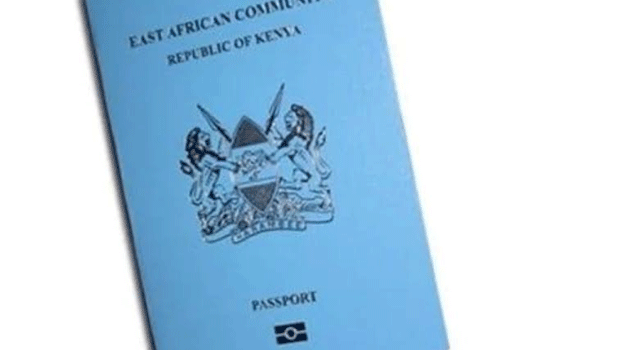CAPE TOWN, South Africa, Jan 9 – As we enter the new decade, Kenya ranks at number 72 on the Henley Passport Index, eight places lower than its position on the index in 2010, with passport holders now able to access 71 destinations without obtaining a prior visa.
African countries have seen the power of their passports decline over the last decade due to political instability and conflict that has affected travel freedom on the continent.
Kenya shared 64th position with Malawi in 2010 and the two countries were leading in the East African region with a visa-free/visa-on-arrival score of 65. A decade later, Malawi and Kenya are a point apart at positions 71 and 72 respectively on the ranking.
The Henley Passport Index is an original ranking of all the world’s passports according to the number of destinations their holders can access without a prior visa. The shift in Kenya’s ranking is emblematic of the widening global mobility gap between African countries and other regions featured on the index — which is based on exclusive data from the International Air Transport Association (IATA).
However, Kenya still commands a relatively high score in comparison to its East Africa region neighbours, with visa-free/visa-on-arrival access to 71 destinations globally. Research using exclusive historical data from the index has revealed that there is a strongly positive connection between visa freedom and a variety of indicators of economic freedom, government integrity, and personal or political freedom.
Managing Partner and Head of South, Central and East Africa, Amanda Smit, says the implementation of reciprocal visa waivers is the determining factor for upward movement in the global ranking.
“The rankings seem to have dropped but it is not that African countries have lost access – it’s that they are remaining static, while other countries are in a position to make mutually beneficial arrangements which add value to their global mobility. All these countries have unchanged scores, but the rankings have shifted. One reason for this shift is that Barbados, Myanmar, and Saudi Arabia have changed their visa policies, giving visa free access to a number of countries, excluding certain African countries,” Smit explained.
Analysing the index’s historic data, political science researchers Uður Altundal and Ömer Zarpli, of Syracuse University and the University of Pittsburgh respectively, have also found a strongly positive correlation between travel freedom and other kinds of liberties – from the economic to the political, and even individual or human freedoms.
They observe: “There’s a distinct correlation between visa freedom and investment freedom, for instance. Similar to trade freedom, European states such as Austria, Malta, and Switzerland that have a business-friendly environment, tend to rank highly when it comes to passport power. Likewise, by using the Human Freedom Index, we have found a strong correlation between personal freedoms such as identity, association and expression, and travel freedom.”
The impact of these and other key developments is analysed in depth in the 2020 edition of the Henley Passport Index and Global Mobility Report – a unique publication that offers cutting-edge analysis and commentary from leading scholars and professional experts on the latest trends shaping international and regional mobility patterns today.



































